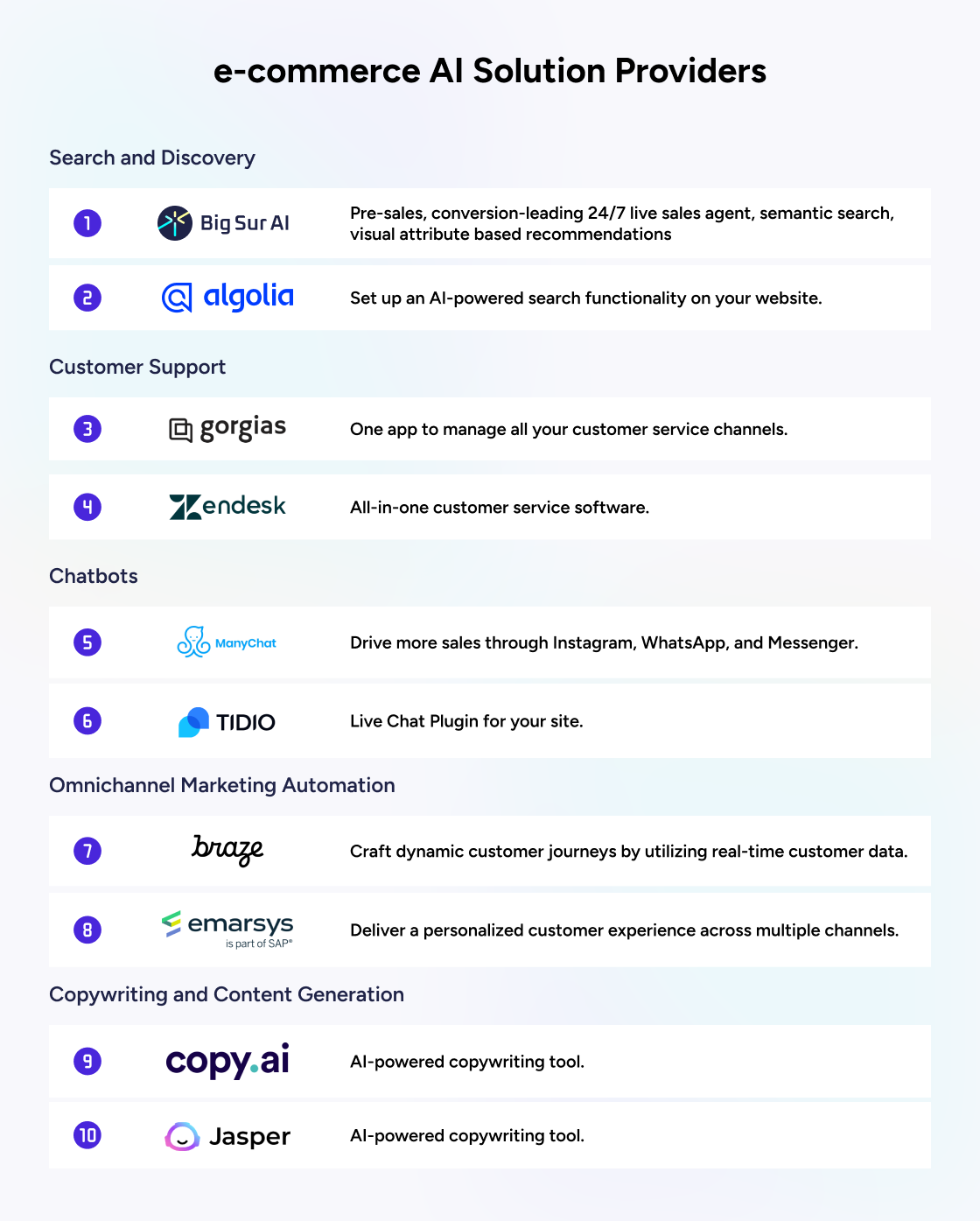36 E-Commerce AI Statistics
Artificial Intelligence has been gaining traction in E-Commerce, as 78% of e-commerce brands have already implemented AI in their stores or plan to do so.
Interested in statistics like this and how AI is used in online stores?
We found 36 powerful E-Commerce AI statistics that can serve you as a benchmark when building your AI strategy for your store in 2024.
TL;DR
- The AI market in e-commerce has grown beyond $184 billion in 2024, surpassing 2023 with $50 billion.
- More and more marketing teams (78%) have been utilizing AI or plan to do so.
- AI-powered personalization can increase customer satisfaction by up to 20% and conversion rates by up to 15%.
- Product recommendations show the best return on investment (ROI) as they have been shown to increase the average order value (AOV) by 11% & conversion rates by 26% on average.
- Personalized product recommendations can make 28% of customers more likely to buy a product they didn’t intend to buy initially.
- The site search function is not something to ignore, as 21% of customers would leave your website if they cannot find what they are looking for.
- Alternatively, an AI-powered search function that is optimized can increase conversion rates by up to 43%.
- Brands are using AI-powered chatbots to both save money from customer support and increase their revenues by up to 25% as chatbots can recommend products.
- Most consumers (69%) cannot make the difference between AI chatbots and humans. Only 31% of the surveyed consumers in the UK were able to differentiate between humans and chatbots.
- When it comes to customer service, 61% of the customers preferred speedy AI responses to wait for a customer support agent.
- AI can potentially lower customer acquisition costs by up to 50% because the technology can identify patterns in data, and predict customer behavior.
What are the best AI tools for E-Commerce?
Read our updated guide of the 10 best AI tools for e-commerce in 2024.
General AI E-Commerce Statistics in 2024
AI has been on the rise in 2024, as the market for Artificial Intelligence grew beyond $184 billion in 2024, a $50 billion jump from 2023.
But how about the rise of AI in e-commerce?
The global market for AI in the retail industry was valued at $4.84 billion in 2021, and it was predicted to reach $31.18 billion by 2028.
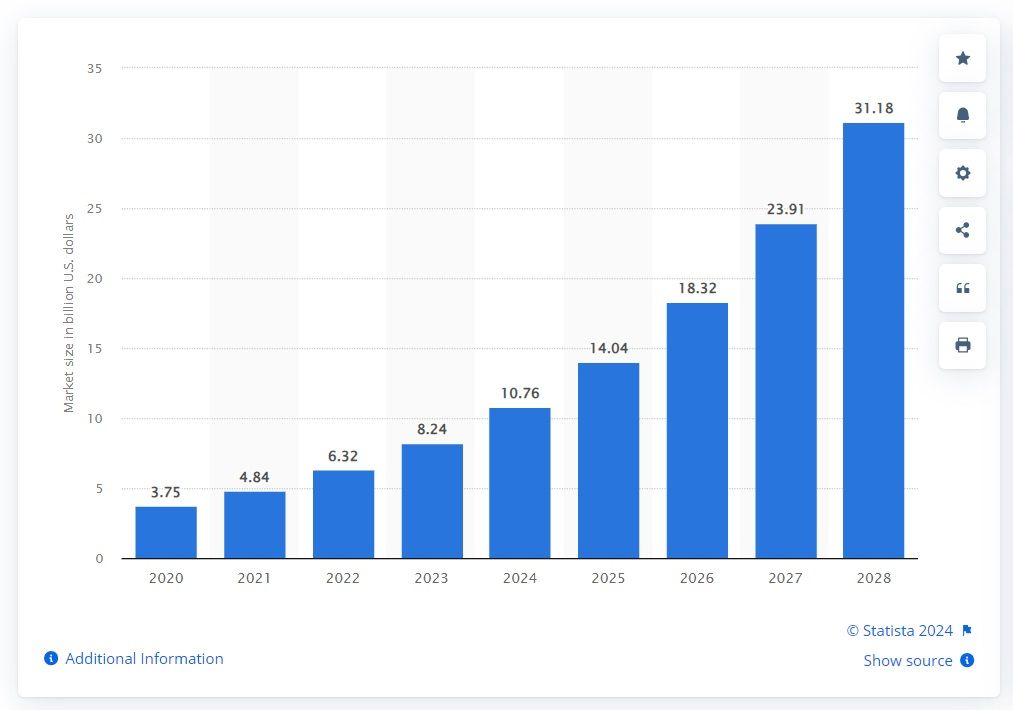
Image and data from Statista.
Let's look at how the technology has developed in online retail:
#1: The size of AI in e-commerce is expected to reach $14 billion
Due to the rise in online shopping and the adoption of new technologies, new forecasts expect a compound annual growth rate (CAGR) of 14.9% until 2028, reaching $14.07 billion.
These numbers are driven by online brands that have been investing in AI-powered product recommendations, customer support, and the focus on fraud detection.
#2: Most e-commerce brands (78%) have already implemented AI in their stores or plan to do so.
The technology has become more affordable in recent years, as 78% of e-commerce brands have already implemented AI into their online stores or are planning to do so.
These numbers are primarily driven by the use of customer service.
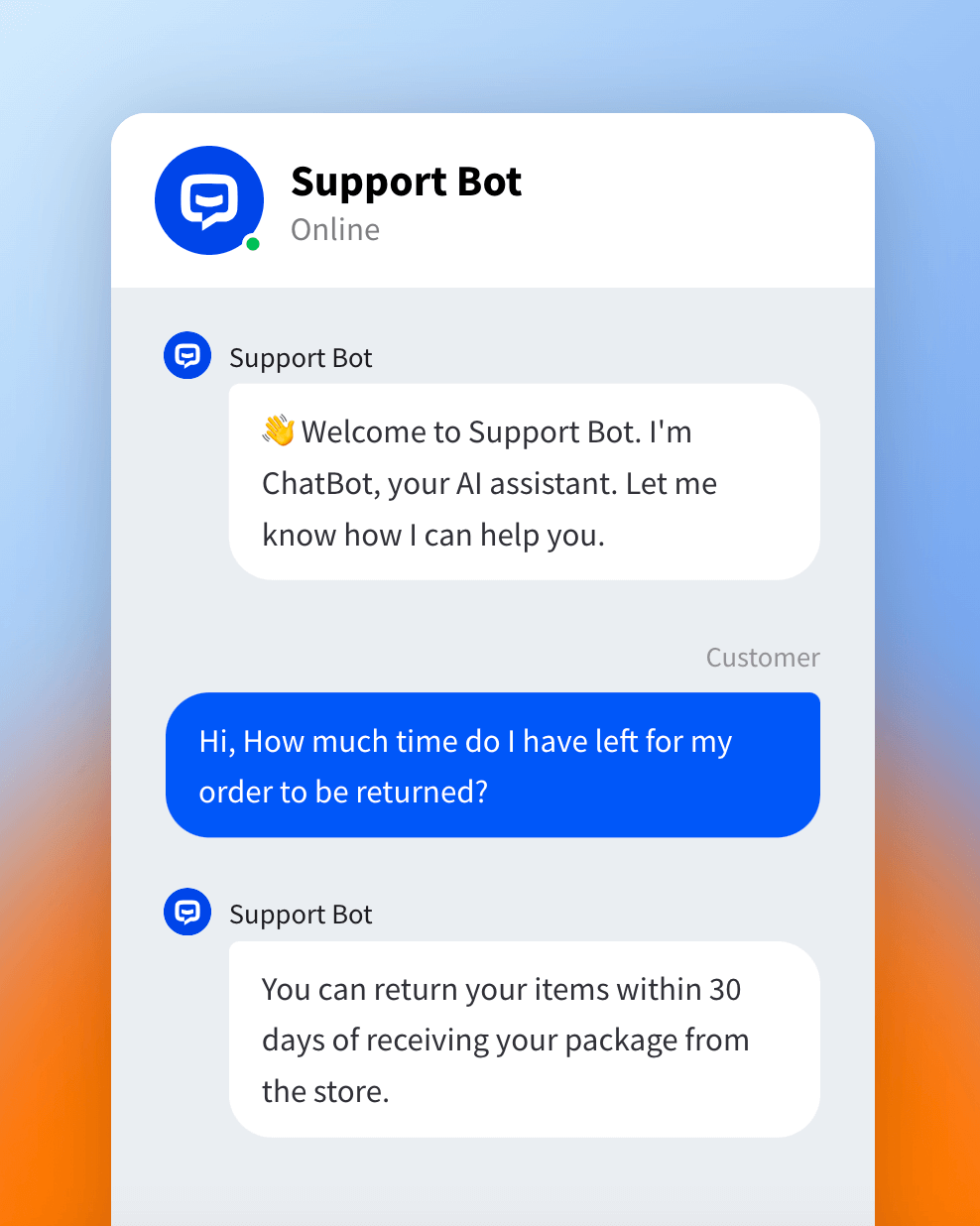
#3: 65% of organizations expect AI to grow within their organization over the next years
In a recent study by MooreGlobal, 65% of respondents noted that they expect the use of AI to grow within their organization over the next 3 years.
This shows companies' commitment to embracing AI technology in the coming years, and their will to invest in automations.
#4: 61.4% of marketers have already incorporated AI into their marketing efforts
Most marketing teams are using AI technology already, and 61.4% of marketers admit that they have done so.
Marketers could be the reason for the rapid adoption, as they are using it to improve personalization and conversion rates.
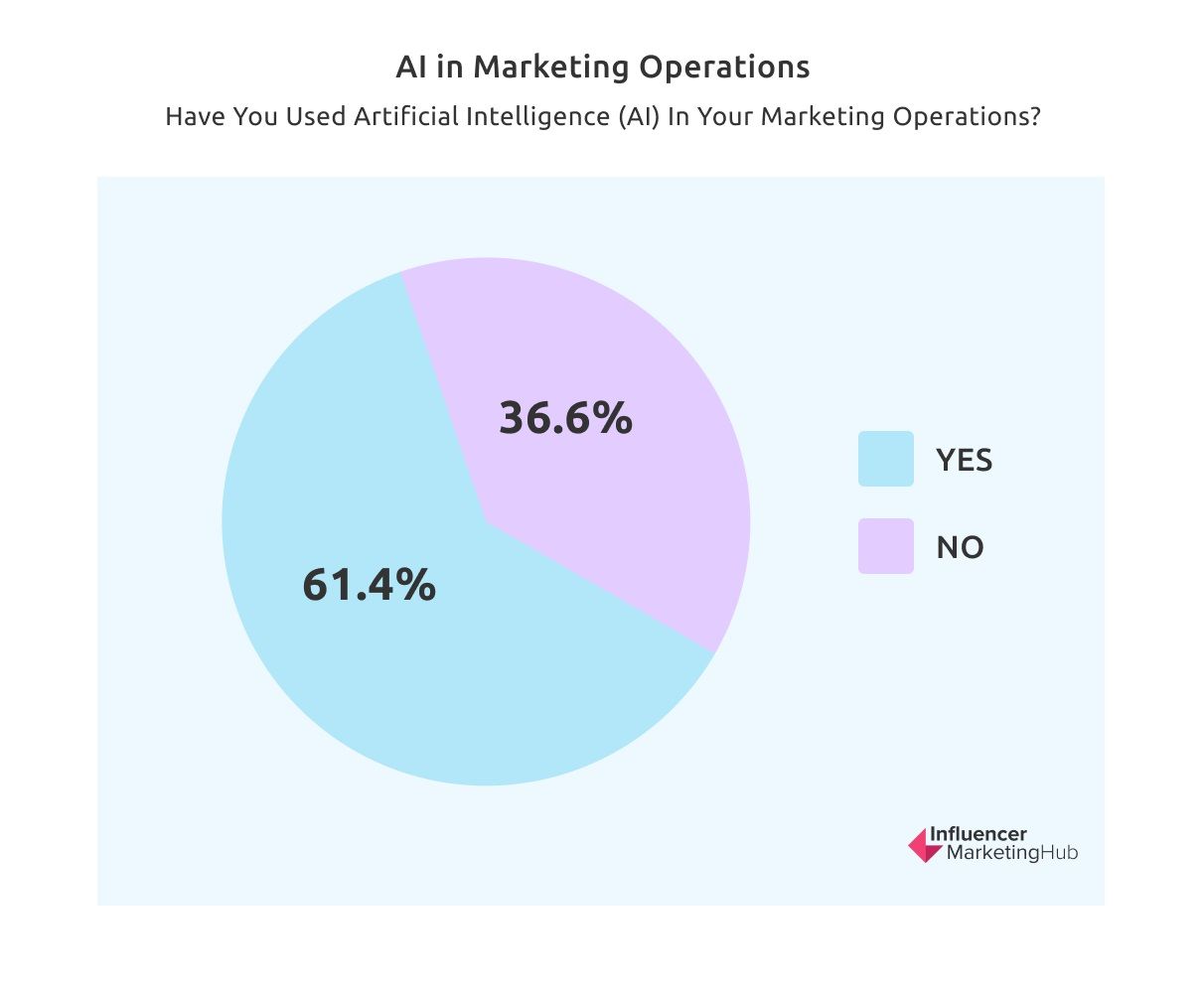
Graphic and research from Influencer Marketing Hub.
#5: 64% of businesses expect that AI will increase their productivity
According to Forbes research, 64% of businesses believe that AI is going to improve their overall productivity levels and business operations.
This statistic shows that brands are becoming more confident in the technology.
This could be because the technology is improving year on year, or because they see their competitors benefitting from it.
E-Commerce AI-Powered Personalization Statistics in 2024
Personalization is one of AI's best use cases in e-commerce.
According to Forrester, 77% of consumers have chosen, recommended, or paid more for a brand that provided a personalized experience for them.

Let's see what kind of results online brands are getting:
#6: Personalized product recommendations account for up to 31% of online brands' revenue
Barilliance surveyed 300 merchants and found out that personalized product recommendations accounted for up to 31% of their e-commerce revenue.
The recommendations were more likely to be what the customers were looking for, as AI can use data to predict product preferences.
#7: Personalization makes 28% of customers more likely to buy a product they didn’t intend to buy initially
Research from Netcore of 200 brands and 600 consumers found that personalization made 28% of buyers more likely to buy a product they did not initially mean to buy.
This shows that AI-powered personalization can affect consumers, and it's not just a quicker way of showing them what they are looking for.
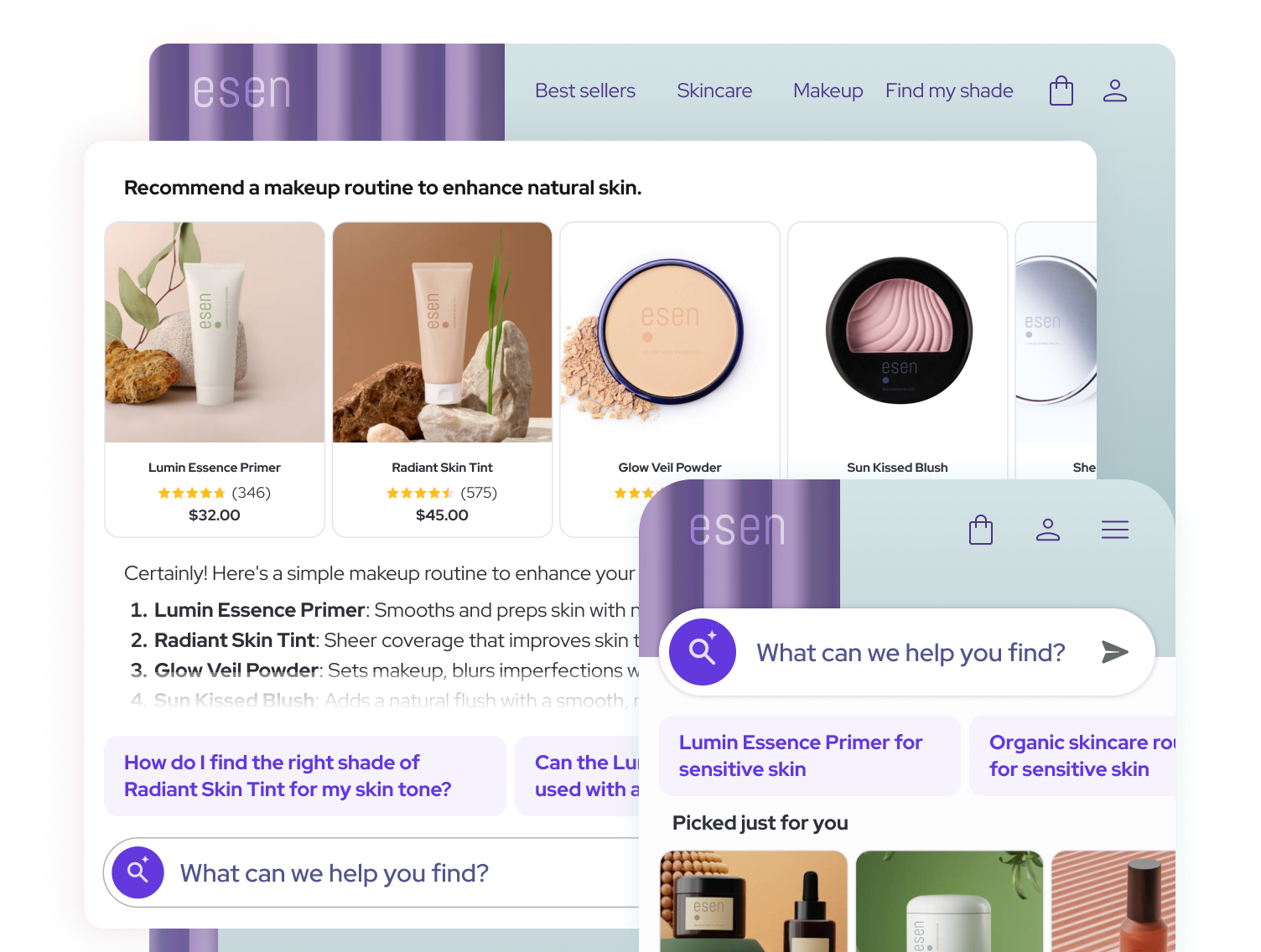
#8: 49% of customers have made impulse purchases based on personalized product recommendations
In a survey by Segment, 49% of consumers have made impulse purchases after they have been recommended a product by an e-commerce store.
This indicates the positive impact of AI-powered product recommendations on conversion rates.
#9: Successful personalization resulted in 20% higher customer satisfaction and conversion rates
Personalization programs can yield up to 20% higher customer satisfaction and a 10-15% boost in conversion rates if successful.
The positive results in sales are 3 times higher than the returns generated by retailers with low customer satisfaction rates, showcasing AI's contribution to customer experience.
#10: AI Product Recommendations can increase average order value (AOV) by 11% & conversion rates by 26%
When evaluating the results of AI product recommendations, research from Adamapp found that it can increase AOVs by 11% and conversion rates by around 26%.
AI can analyze what products are frequently bought together, and the technology can cross-sell or up-sell products to consumers, increasing basket sizes.
Here's BigSurAI recommending products based on how shoppers have engaged with the Wyze store 👇
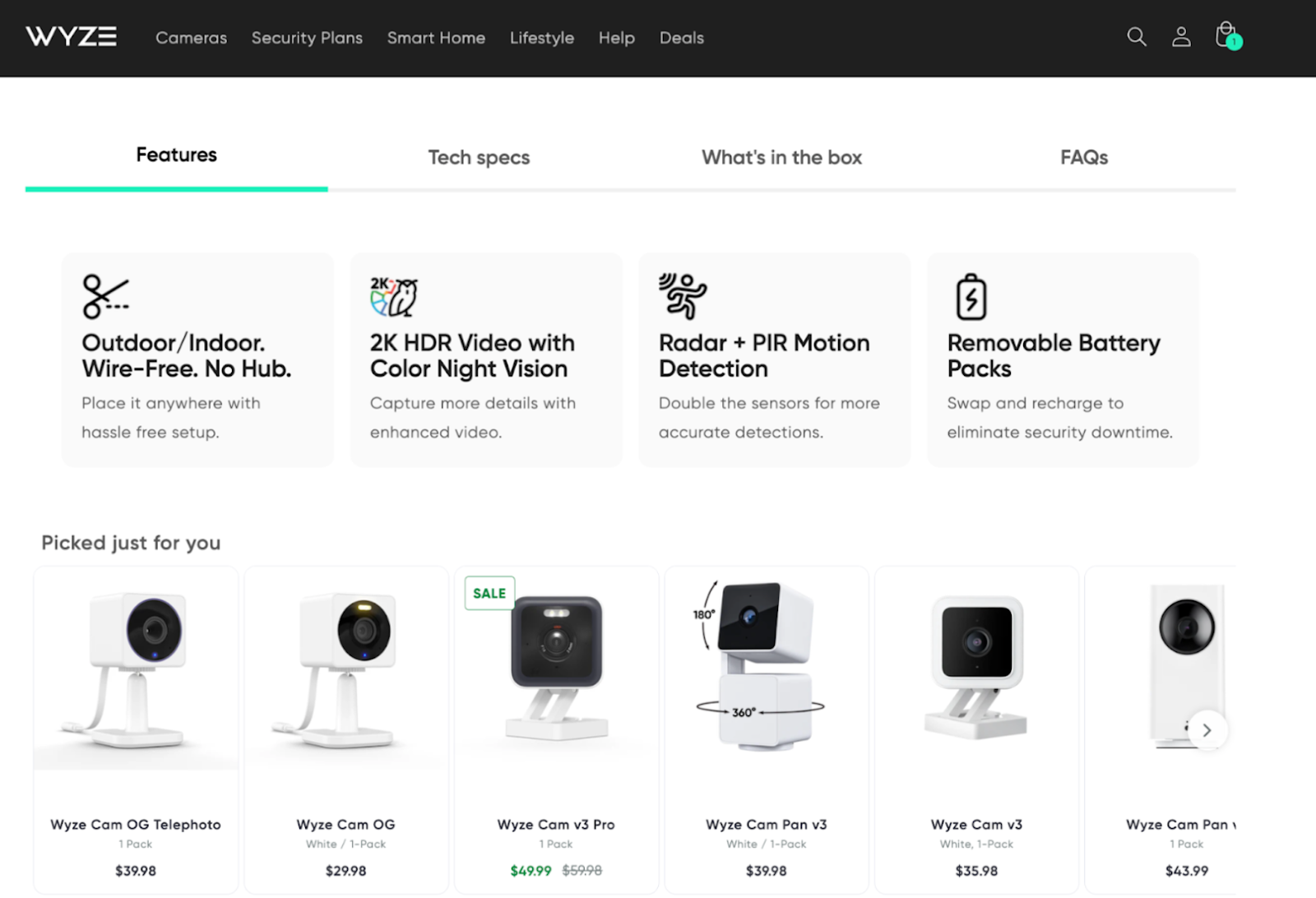
#11: Personalized product recommendations can also improve cart abandonment by up to 4.35%
Research from Barilliance found that implementing personalized product recommendations can improve your cart abandonment by up to 4.35%.
The reasoning is likely that personalized product recommendations increase consumer confidence that this product is for them, resulting in a lower chance of leaving the website.
#12: 51% of customers said they are more likely to purchase from a brand if the content is personalized to them
Adobe surveyed US consumers and found out that 51% of consumers are more likely to make a purchase from a brand if the content has been personalized to them.
Moreover, 49% of them were also more likely to become loyal to the brand.
Must-Know E-Commerce Site Search Statistics In 2024
Long gone are the days when people searched for products in physical stores, as 87% of shoppers now begin their product search online.
You can delight your prospective customers if you have a strong search function that can show them what they want.
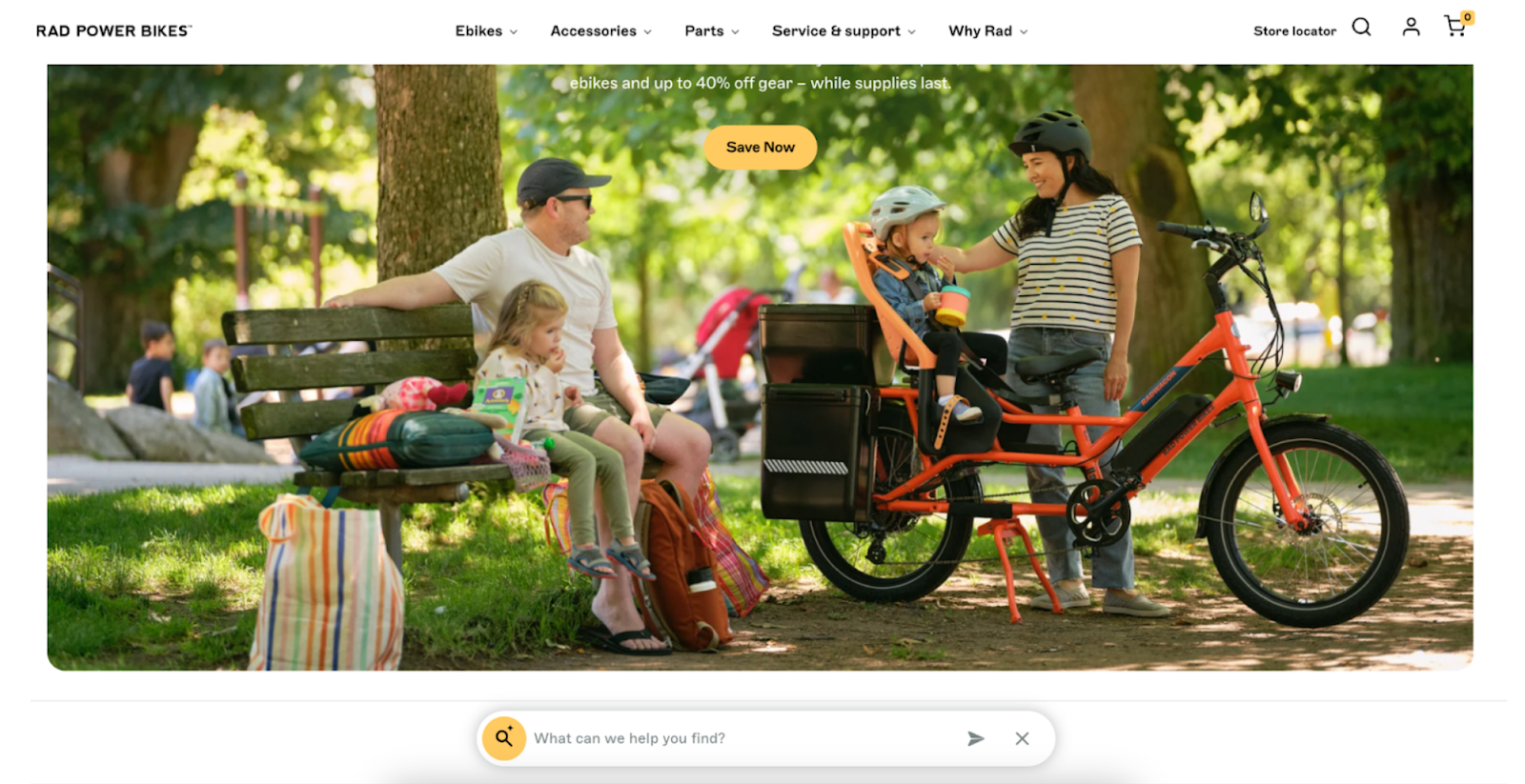
Get in touch with our team to enable that on your store.
#13: 43% of users on retail websites go directly to the search bar.
Almost half of e-commerce customers (43%) directly go to the search bar to find what they are looking for.
This is why e-commerce brands cannot afford to have a poor search experience in 2024 with ''null results''.

#14: 72% of websites fail site search expectations.
According to Algolia, most websites (72%) are currently failing site search expectations.
Our take: Consumers cannot always search for specific product names.
This is why e-commerce site searches need to incorporate AI to understand user intent (e.g., looking for a summer dress).
#15: Case studies show increased conversion rates of 43% from site search optimization.
Site searches account for up to 14% of all revenue, and case studies from CXL show that optimizing your site search can increase conversion rates by up to 43%.
If your customers find what they are looking for, tailored to their needs, they are more likely to convert.
#16: 39% of consumers are influenced by a relevant search result.
Google research found that 39% of consumers are influenced by a relevant search result.
This statistic is tied to the increased conversion rate by implementing an AI-powered search that can understand user intent.
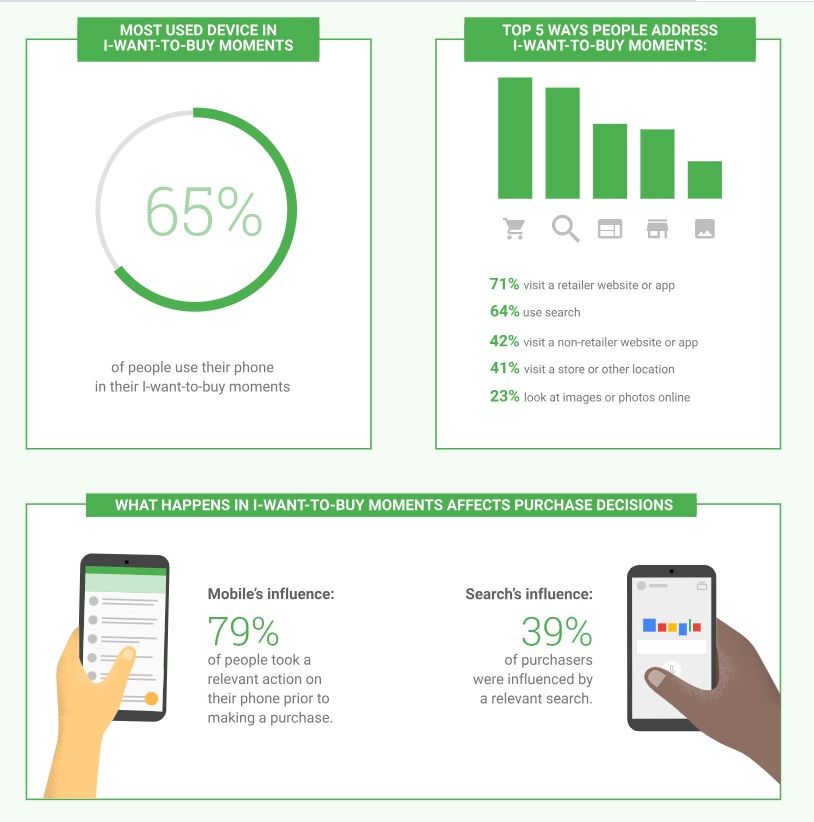
Image and research from Google.
#17: 20% of users submit another search and 21% exit the website from the search results.
When users are not satisfied, they either search again or exit from the website completely.
Econsultancy research found that 20% of users submit another search and 21% will quit trying and leave the site.
#18: Autocomplete can boost sales and conversions by 24%
By incorporating site search software with autocomplete, you can boost your sales and conversions by up to 24%, according to Spyfu.
Autocomplete is when the site search software assumes long-tail keywords when users start typing.
The research also found that every word added to a search drives a 15% increase in conversion rates, as people are more sure about what they are looking for.
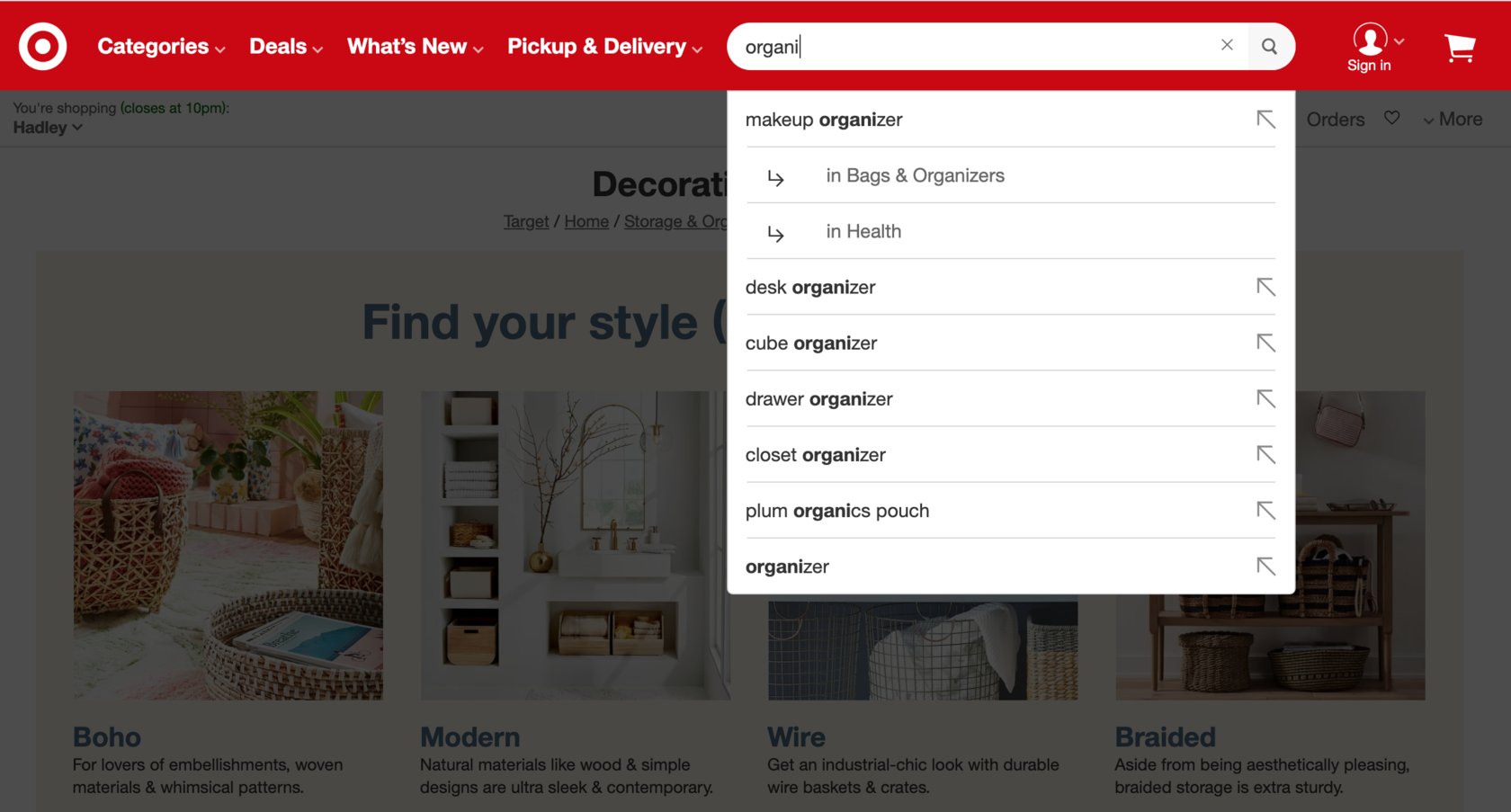
Generative AI In E-Commerce Statistics in 2024
Generative AI has been prominent in the wider business world, as we already covered earlier.
In e-commerce, marketers are using generative AI to set up conversational chatbots.
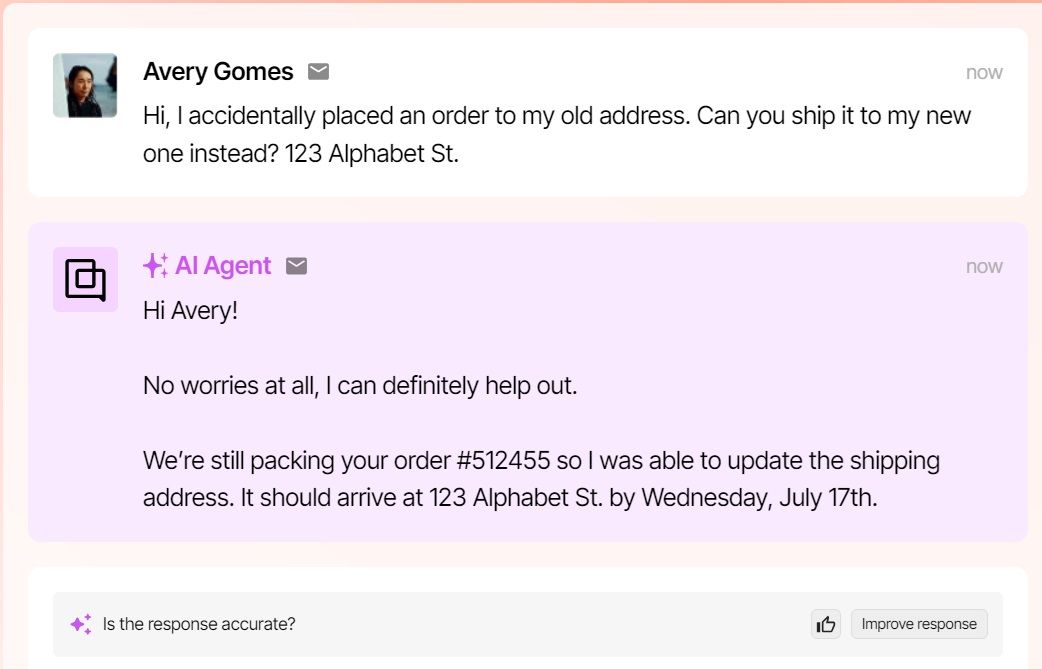
Let's look at what the statistics say about the results:
#19: 83% of consumers would browse or buy products in messaging conversations.
The research found that most consumers (83%) would browse or buy products in messaging conversations.
This is confirming the consumer desire for a conversational experience in e-commerce stores, instead of only browsing through product pages.
Our take: Consumers miss the experience of talking to a qualified sales professional from brick-and-mortar stores.
This is why it comes naturally to them to ask questions to AI-powered chatbots.
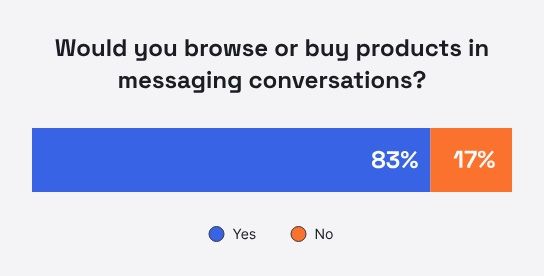
Research and image from Liveperson.
#20: 35% of consumers find AI-powered conversational chatbots interesting
Statista research found that 35% of consumers found conversational chatbots to be interesting.
The surveyed consumers noted that the chatbots helped them discover new products and services.
#21: Generative AI in e-commerce forecasted to reach $2.1 billion by 2032
The industry of Generative AI in e-commerce has been forecasted to reach $2.1 billion by 2032.
The projected annual growth rate of the industry is 14.90%, noting e-commerce brands' commitment to incorporating the feature on their sites.
#22: AI-powered chatbots reduce resolution time to 5.4 minutes from 38 hours in customer service
Chatbots are being used as customer service software, as they have been studied to reduce ticket resolution time from 38 hours to 5.4 minutes.
Instead of waiting for a customer support representative, customers can get instant answers from the chatbot on information, such as packaging tracking or return policies.
#23: Only 31% of UK online shoppers can differentiate between humans and AI chatbots
Research found that only 31% of consumers in the UK can differentiate between humans and AI-powered chatbots.
This shows the progress of chatbots' natural language processing (NLP) capabilities, as they can hold a real conversation with customers, and not just answer commonly asked questions.
#24: Online stores see up to 25% annual revenue increase after utilizing conversational chatbots
Stores that have incorporated a conversational chatbot in their e-commerce store see an increase in annual revenue of up to 25%.
This is not only true on websites; research has found that brands that incorporate chatbots on Facebook Messenger are increasing their revenues by sending out abandoned cart messages.

Image and research from Chatbots Magazine.
Automation and AI in E-Commerce Statistics in 2024
E-commerce websites are using automation to save time and improve their efficiencies.
Such manual tasks that can be automated by e-commerce are:
- Basic Customer Service.
- Data processing.
- Back-end workflows.
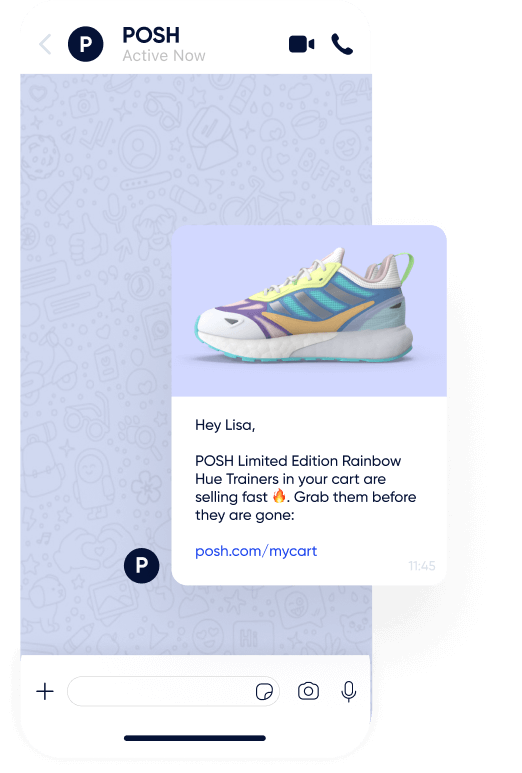
#25: 78% of marketers welcome automations so they can focus on their priorities
Research from Flair found that the majority of marketers (78%) are using automations in order to save time.
This allows them to focus on their priorities instead of doing tasks manually.
#26: 80% of retail executives expect their businesses to adopt AI automation by 2025
The majority (80%) of retail executives are expecting to adopt AI automations by 2025, according to research from Synthesia.
The research also projects that 19 in every 20 customer interactions will be AI-assisted in some way by 2025.
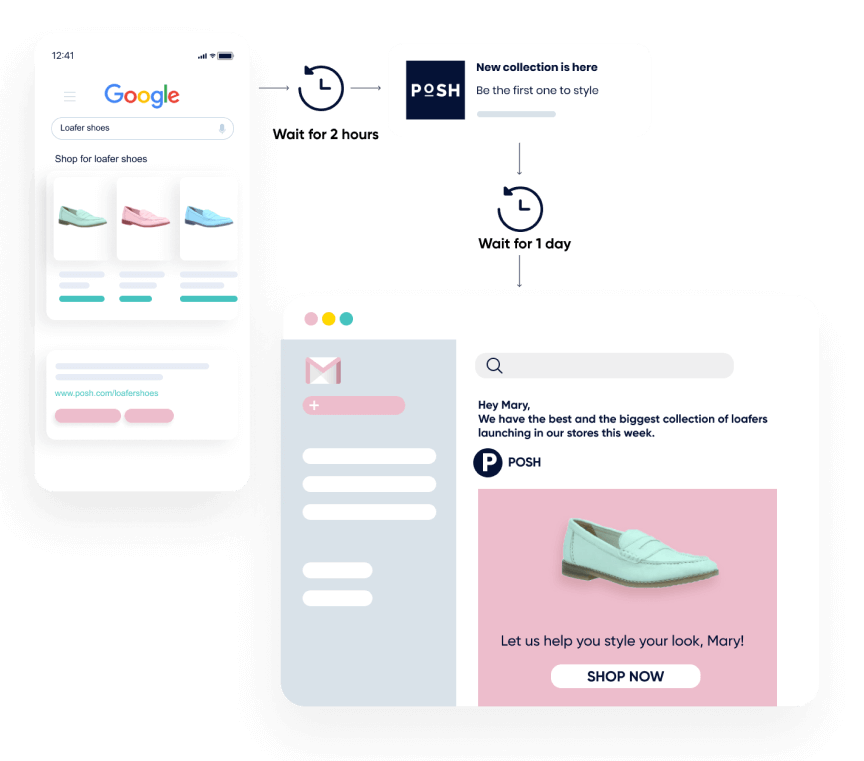
#27: 90% of data processing positions and 80% of data collection positions are likely to be automated
AI tools are good at collecting data and using it for personalization and automations.
According to Semrush, around 90% of data processing and 80% of data collection are likely to be automated in the future.
Our take: This would allow retailers to gather more first-party data from their users, and use that data to increase their conversion rates.
#28: AI can increase efficiency by automating up to 50% of back-office workflows
AI tools can be used in e-commerce to increase up to 50% back-end efficiency by automating tasks.
Merchants can use AI to automate inventory management, order processing, and automate marketing campaigns, such as automated emails.
#29: 65% of customer service tasks are already automated
Research from McKinsey shows that 65% of customer service tasks are already automated, creating an omnichannel experience for consumers.
This allows e-commerce brands to reduce the time it takes to respond to customers, minimizing response rates and customer satisfaction - across different channels.
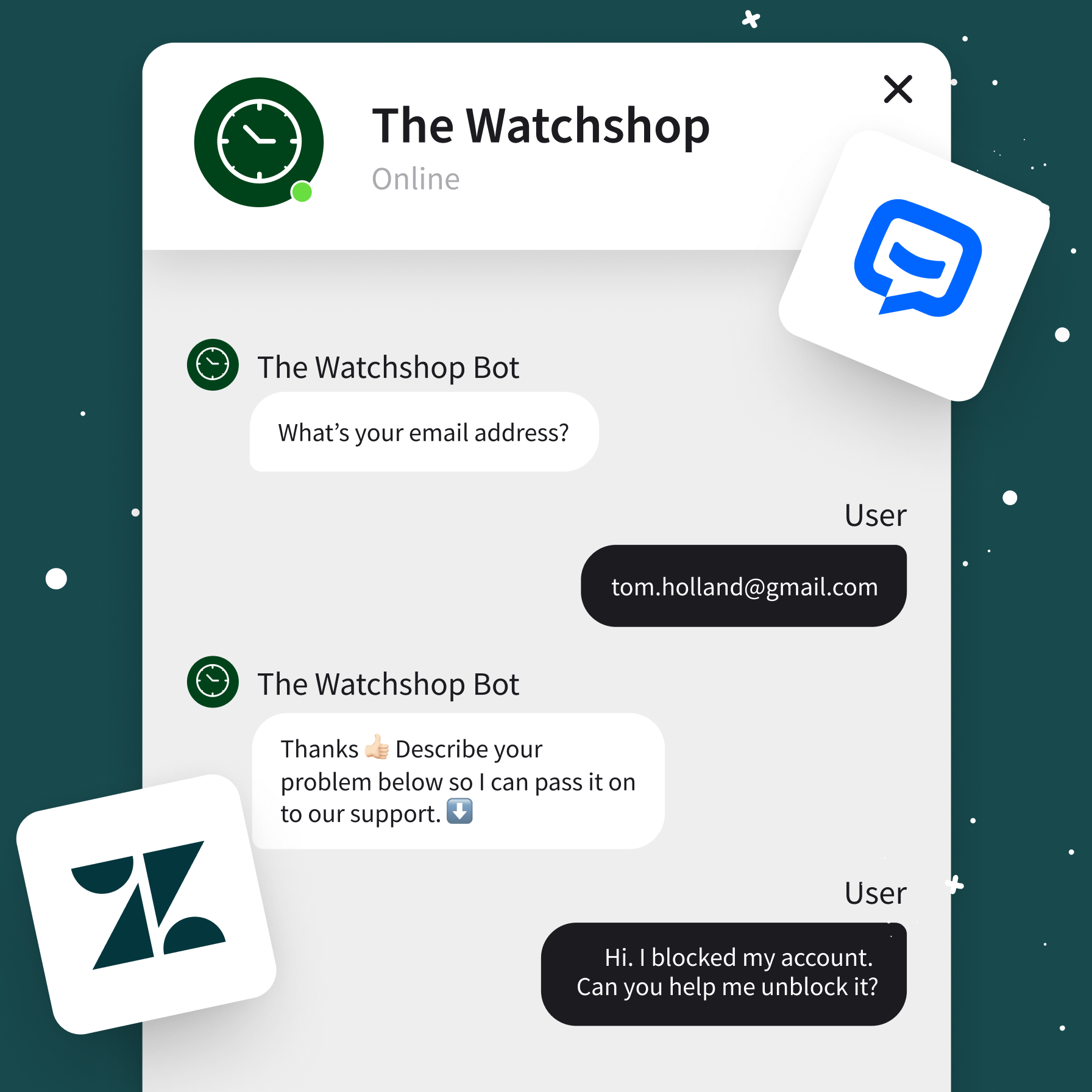
AI-Driven Customer Experience E-Commerce Statistics in 2024
By now we know why merchants want to incorporate AI into their businesses - to increase their revenues, minimize cart abandonment, and save time.
But do your users want it?
Here's what the data says about the effect of AI on customer experience:
#30: 69% of customers prefer to use chatbots because they provide fast responses
Most customers (69%) are open to the use of AI-powered chatbots in e-commerce, as long as they can provide them with quick responses.
That means you can save not only your time and money by incorporating chatbots but also theirs.

Image and research from Umni.
#31: 50% of online shoppers want to increase their online shopping experience regarding price comparison.
Research found that half (50%) of online shoppers want to improve their shopping experience by being able to compare prices.
Conversational AI chatbots can help customers compare your products' prices, features, and use cases to choose the right ones for their specific needs.
Here’s an example of BigSurAI’s Sales Agent helping a shopper pick the best Rad Bike ⤵️
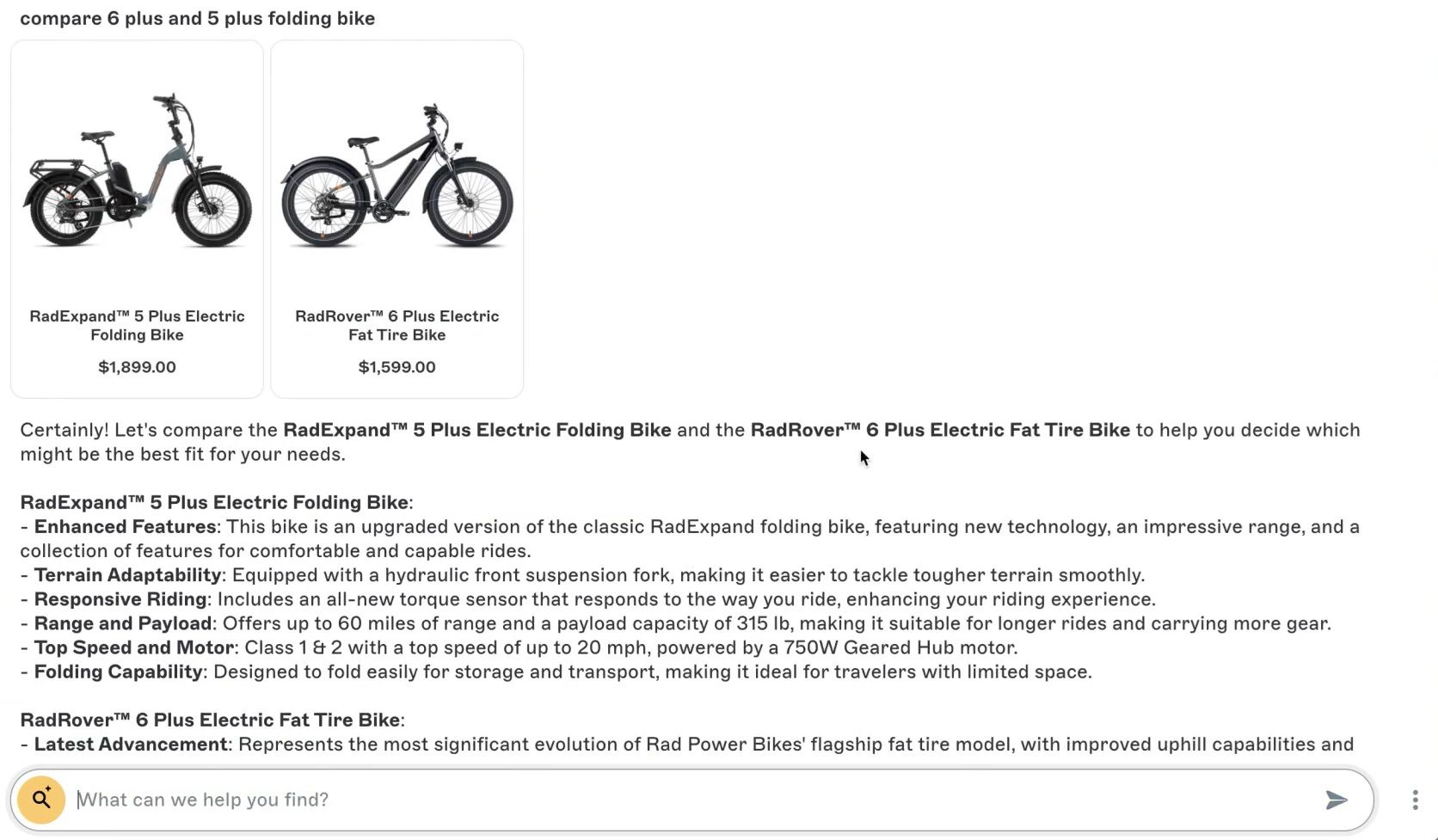
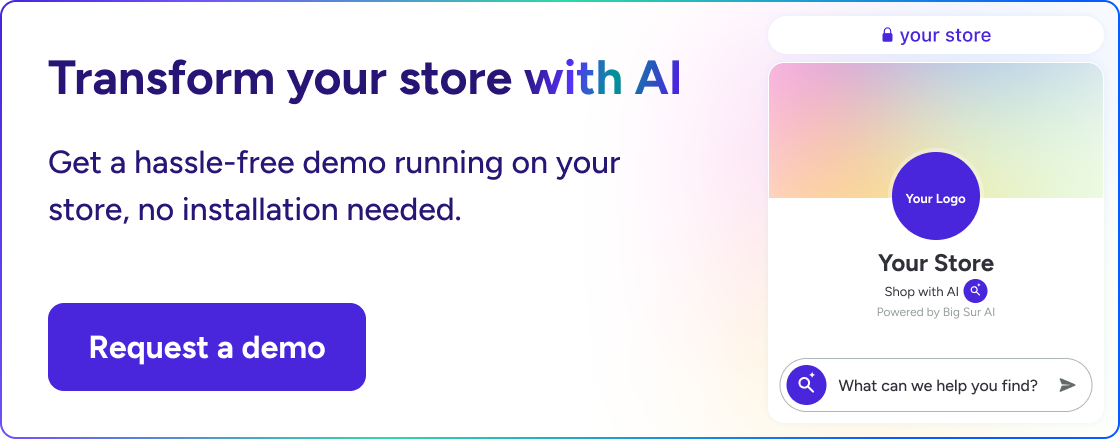
#32: 41% of UK shoppers believe that AI is having a positive impact on their retail experiences.
Around half of UK shoppers (41%) believe that AI is having a positive impact on their e-commerce experience, according to the E-Commerce Forum.
That shows there are still 59% of the consumers who are not yet sold on the idea of AI completely.
Interestingly, we already covered that most of them are not even aware that there is AI set in place.
#33: 91% say they’d rather interact with humans than AI
When asked whether they prefer to speak to a human or AI, the majority of customers (91%) say that they'd rather interact with a human over AI.
Despite that, 77% of shoppers note that they prefer brands that offer personalized recommendations, according to the same research from Emarsys.
#34: [Case Study] 61% of customers preferred faster AI responses than waiting to speak to a customer support agent
A case study from Intercom showed that 61% of their customers preferred quicker AI responses rather than waiting to speak to a customer support agent.
Their customer support chatbot has provided a seamless experience for the customers with quick responses and fast resolution rates.
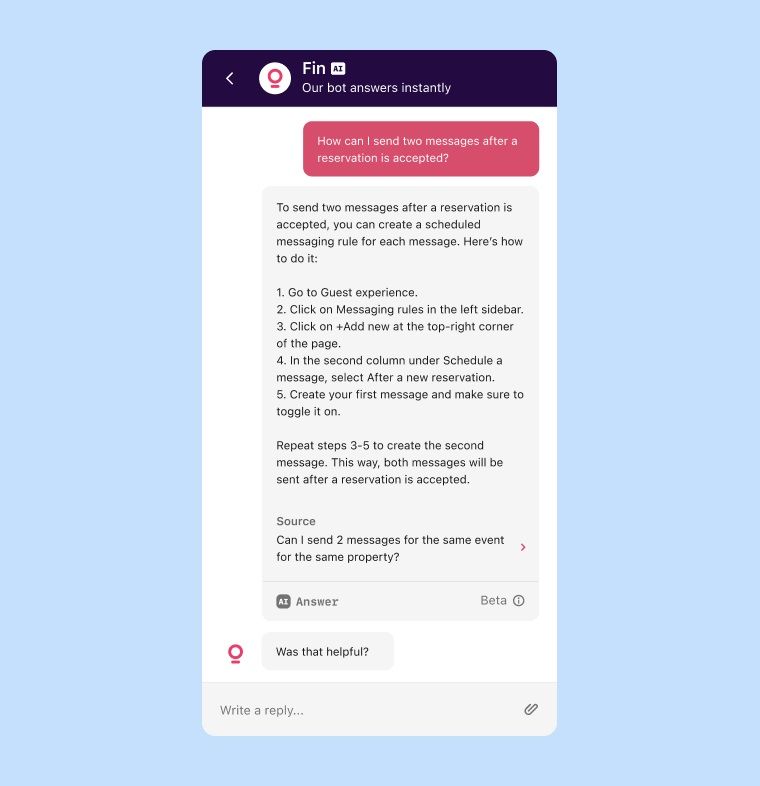
Image and research from Intercom.
#35: Companies are reducing their customer support costs by up to 80% by providing chatbots.
E-commerce brands have been utilizing AI-powered chatbots to save up to 80% on customer support costs.
The customers also receive faster service, and the ''human mistake'' factor is minimized.
#36: AI can potentially lower customer acquisition costs by up to 50%.
According to GoCustomer, AI's capabilities can reduce customer acquisition costs by up to 50%.
This is because AI tools are now able to identify patterns in data, predict customer behavior, and personalize the customer experience with product recommendations.
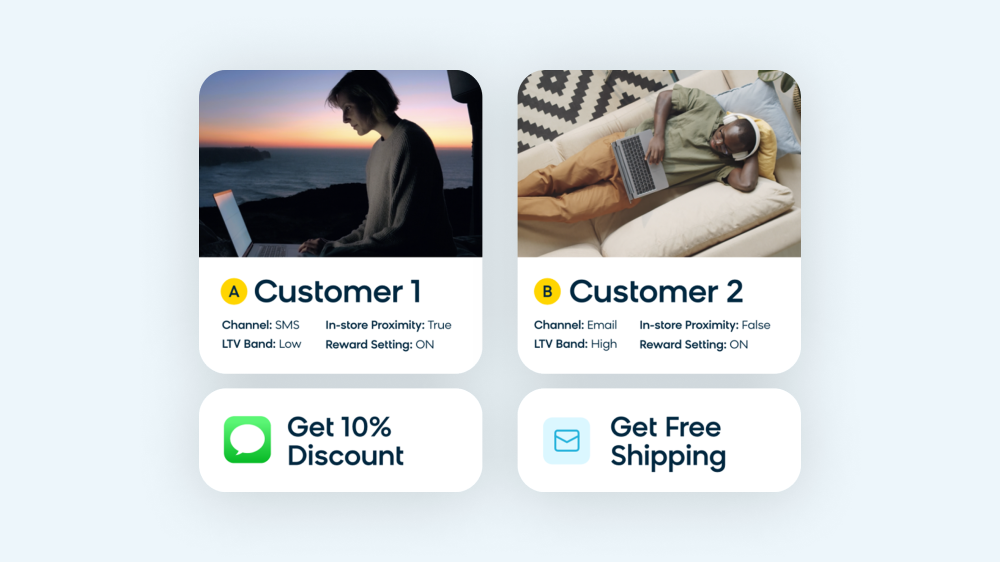
Key Takeaways
The marketing teams at e-commerce websites have already been incorporating AI into their conversion funnels - from site searches to chatbots.
And they are getting a positive return on investment (ROI) from these AI tools.
We covered that AI can:
- Improve your annual revenue by up to 25% after utilizing conversational chatbots.
- Minimize your customer service costs by up to 80%.
- Nudge 28% of your customers to buy a product they didn’t intend to buy with personalization.
- Lower your customer acquisition costs drastically.
💡 Users who interact with our AI-powered chatbot convert at 4x the rate of the average user at a store.
To discover other AI apps, read our guide here.
